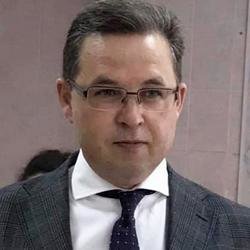How Bashkiria is trying to halt explosive COVID-19 incidence growth
New multi-stage restrictions are introduced in the republic, will this be enough to reduce the incidence?
A sudden rise in the COVID-19 incidence in Bashkortostan has forced the regional authorities to impose new anti-COVID-19 restrictions. The first stage of anti-coronavirus measures has been in force for the third day. Now a vaccination certificate, a certificate about recent recovering from COVID-19 or a PCR are required to visit some institutions. Read in Realnoe Vremya’s report what new restrictions are planned to be introduced, if these measures will help reduce the incidence and how the public responds to them.
New anti-COVID-19 restrictions in Bashkiria
The latest data on the COVID-19 incidence in Bashkortostan is sad. A record-high number of cases in the republic is updated almost every day, in late September, the curve went up from 300 to 450 people a day.
Rady Khabirov expressed his opinion about the difficult situation during a briefing. The head of the republic urged citizens to receive a vaccine again. “The situation with coronavirus has suddenly complicated. Our vaccination rates have fallen. We have vaccinated those who care about their health. But there are those who have doubts, this is why it is necessary to reinforce the propaganda, explain the importance of vaccination to people.”
At the same time, Bashkiria’s anti-COVID-19 task force decided to introduce restrictive measures in three stages. A PCR test, vaccination certificate or certificate about recovering from coronavirus in the last six months have been required since 4 October to attend public and municipal museums, theatres, libraries, cultural centres, cinemas and mass sports events.
From 12 October, this list will include shopping malls, private museums, exhibition halls, libraries, cinemas, concert halls. It won’t be possible to buy a ticket to long-distance buses and Orlan suburban train. From 18 October, the restrictive measures will spread to beauty salons, spas, sunrooms, banyas, saunas, health centres, gyms, swimming pools, restaurants and cafes if they have more than 50 seats.
Vice head of the Bashkortostan office of Russia’s consumer rights protection watchdog Galina Permina claimed that a negative PCR would not be enough to visit public places. She said that at the briefing on the order on the high alert and the current epidemiological situation in the republic.
The republican office of the watchdog recommended citizens above 60 years to visit public places and use public transport less. It advised people with chronic diseases to self-isolate during the rise of seasonal respiratory infections and COVID-19.
Contradictory reaction
Residents of Bashkortostan differently responded to the reinforcement of restrictive measures. Some citizens believe that the decision is correct and timely, while society relaxed too early.
“For some reason, many think that the virus has already gone and there is nothing to fear. Almost everybody forgot the masks, this is why the incidence is growing. My relative has recently been admitted to a COVID-19 hospital, she also thought that the virus was a tale, while the masks and vaccination were rubbish. I approve of the restrictions,” says Maria Afanasyeva.
However, many residents of the republic find serious mishaps in the way the new requirements in the fight with COVID-19 are met.
“No more than five people can be in the bank. This is why there are five people in a big room, while the rest of the queue is in a small reception area, 2x2 metres in size — 10 people want to enter the bank, 3-4 people stay near the cash machines. These people stay in the queue close to each other, nearly hugging each other, and they will put the masks on just before entering the bank itself,” Yelena Marinuyk is indignant.
Those who cannot receive a vaccine due to a medical exemption also have questions. And together with the new restrictions, they cannot visit certain institutions and establishments.
“I mean a vaccine cannot be received because of a medical exemption, and you anyway cannot go anywhere!” Ruslana Bakirova protests.
Lawyer Matvey Leontyev paid attention to the ill-considered system designed to control the entrance to establishments from the restricted list:
“I have a question, who will control the entrance to the indicated establishments? If it is the security staff of these enterprises, any person can say ‘yes’ or ‘no,’ while there is no need to show something because it is medical privacy. The governor hasn’t appointed authorised officials.”
Residents of big cities don’t understand why the restrictions are imposed for suburban transport, while full urban buses remain unnoticed.
“It is possible to use suburban buses but impossible to use urban buses,” notes Guzel Ibragimova.
“We won’t get through without vaccination”
Experts assume that the restrictions will help reduce the number of infections. However, to achieve a serious fall in the incidence, it is necessary to have the majority of the population vaccinated.

“Unfortunately, these restrictions have to be introduced. I think they will allow reducing the incidence at the moment.”
As for the verification of QR codes at the entrance to urban public transport, Rafael Yapparov thinks this is hard to do because a part of the population cannot be divested of the right to use transport.
“The majority of the population uses public transport. First of all, it is necessary to follow rules. People without masks shouldn’t be allowed to get on the bus. The population should be careful. I have been in a store today for a couple of minutes, people don’t have the masks. Perhaps, certain measures as administrative punishment should be taken.”
Head of the Department of Epidemiology of Bashkir State Medical University Azat Mukhametzyanov notes that the number of infections can be reduced in public transport if the instructions are strictly followed:
“During the organisation of transportation, it is necessary to provide daily disinfection of the transport, to mandatorily disinfect the cabin at the final bus stop after the run ends, drivers, conductors and passengers must wear masks (a driver may not use a mask if he has an isolated cabin), it is necessary to measure the temperature of the transport company’s workers.”

“It is unnecessary to introduce lockdowns, people will start dying from hunger, businesses have already been hurt. Gradual restrictive measures are necessary — mask wearing, concerts should be limited. Restrictions aren’t introduced after mass events.
Talking about vaccination, Gleb Glebov notes that the urges of receiving a vaccine at the peak of the pandemic are in some cases out of place:
“Now people are forced to receive a vaccine. A question arises: how safe is it at the peak of the pandemic? Perhaps, people already fell ill, and now they will gather at vaccination sites.”

“Society is very offended by the authorities because of forced vaccination and strong propaganda even when there have not been longitudinal studies. If the coercion intensifies, the scale of the indignation will be compared to the pension reform. The current incidence is also the consequence of fake vaccination governors didn’t really stop. Because this favoured the good statistics and reports submitted at the top. The main problem of the anti-COVID-19 policy now is that the percentage of those who aren’t ready to receive a vaccine isn’t falling. Governors cannot solve this problem.”
Rafael Yapparov thinks that there can be different reasons why people refuse vaccination. But seeing the situation around, people will sooner or later realise the importance of the vaccine:
“There are different points of view. There are categorical anti-vaxxers, some people aren’t sure of the quality of our medicine, the quality of drugs, some people don’t believe our science. Some people maybe would receive foreign vaccines. Unfortunately, we don’t have such a chance. When something is discussed too much, people look for some pitfall. Now something is changing, and I think the minds of many anti-vaxxers will anyway change.”